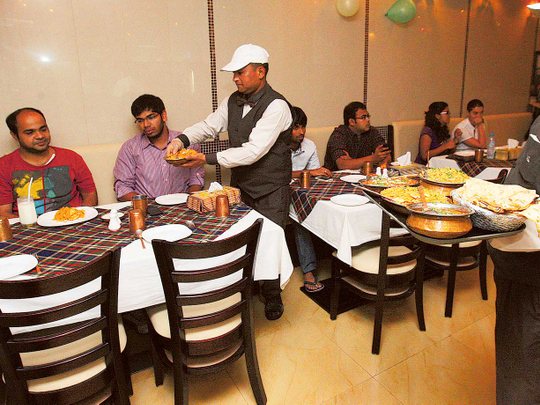
Dubai: Crossing all expectations, 2,414 high-risk food establishments in Dubai have received A+ rating in the inspections conducted during the nine months of 2017.
The inspections were carried out by the Food Inspection Section at the Food Safety Department, Dubai Municipality.
Sultan Ali Al Tahir, head of food inspection section, said that this a huge difference for the city of Dubai compared to the previous years.
“Only 443 food outlets had qualified for the prestigious A+ rating during 2016,” he said.
Al Tahir said that during nine months, the inspection teams conducted 26,285 visits to ensure that the food outlets comply with the food safety rules and regulations of the municipality.
During the visits, Dubai Municipality also closed down 124 food outlets temporarily due to their high-risk violations. The municipality allowed a large number of them to re-start the work after meeting the technical specifications and hygiene requirements and fully complying with the food safety rules and regulations of the municipality.
Al Tahir explained that an increased number of temporary closure orders were monitored during the summer months, due to high temperatures, which negatively affect the safety of food, and a sharp decrease was noticed in the number of closures with the beginning of the winter months.
Al Tahir said that high-risk establishments represented hotels and big restaurants with large quantities of food preparation.
“The increased number of excellent rating was the result of the implementation of strategic food safety programs for the food establishments in the emirate and their adherence to our procedures to raise the hygiene and technical standards to reach this advanced level, most notably the application of HACCP risk analysis system in all hotels, catering companies, and increasing their effectiveness,” he said.
Al Tahir also pointed out that this type of system targets the risks related to the food chain from raw materials to the consumer table.
"As for the low-level establishments, we applied the Intelligent Inspection Program, which was designed to identify, figure out and analyse the technical and hygiene risks, as well as to process them by developing radical solutions, in addition to applying the best practices in food safety. This has contributed significantly in raising the level of evaluation of the food establishments,” he said.
Al Tahir added that 98 per cent of the Hygiene Supervisor Program has been implemented, which contributed greatly to the high hygiene situation in the various food establishments.
“The goal of the municipality is the participation of private establishments in improving their level and training their employees. We are working on a clear plan to raise their level, so that it is similar to the levels achieved by the emirate, as we have hotels and establishments with a rating of 7 stars, and food establishments should be equivalent to this class,” he said.












